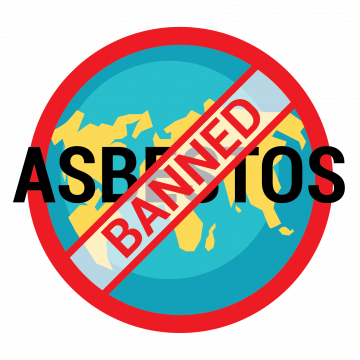Still Exploring?
Looks like you’ve been exploring our platform.
Want to see everything in one place?
 Many governments around the world have introduced legislation to restrict the use of asbestos and related products in the manufacturing, sale and disposal of goods. According to the International Ban Asbestos Secretariat (IBAS), 66 countries have outlawed the use of asbestos, and of the remaining 129 countries, over 80 percent do not use asbestos. Inhaled asbestos fibers act as a prolonged irritant, and can cause diseases such as asbestosis and mesothelioma.
Many governments around the world have introduced legislation to restrict the use of asbestos and related products in the manufacturing, sale and disposal of goods. According to the International Ban Asbestos Secretariat (IBAS), 66 countries have outlawed the use of asbestos, and of the remaining 129 countries, over 80 percent do not use asbestos. Inhaled asbestos fibers act as a prolonged irritant, and can cause diseases such as asbestosis and mesothelioma.
In some cases, companies may be required to provide product and/or part declarations at customs in order to sell into a particular country. Companies that fail to do so, or whose products are found to contain asbestos, may face loss of market access, fines and reputational damage.

Companies involved in the manufacture or sourcing of high-temperature products, parts and/or materials will be affected. Those operating in chemical refining, mining, mineral processing and construction could be impacted by the asbestos ban as well.
Companies must be diligent in identifying any use of asbestos in their supply chains. However, collecting the data can be a challenge for the following reasons:
Transforming data into usable insights is increasingly complex for in-house compliance teams, which may not have access to the necessary tools or latest information on regulatory changes affecting their industry.
Even with an efficient, in-house compliance team, gathering the required data and preparing reports costs substantial time, effort and resources. This may place strain on the compliance team and open the door to additional risk.
The Asbestos Declaration DSL Module helps companies acquire supplier data against a list of asbestos-related materials and can be configured to: